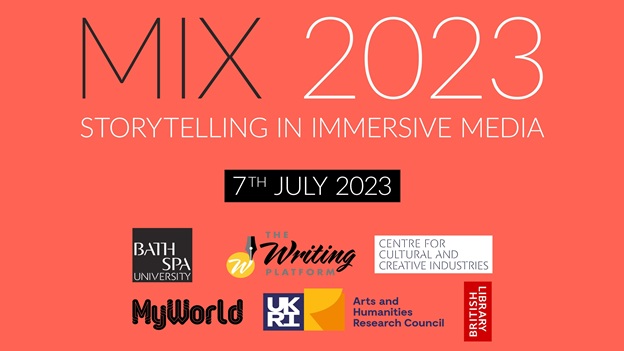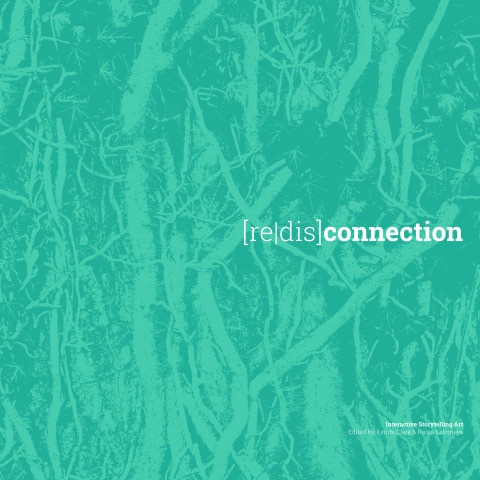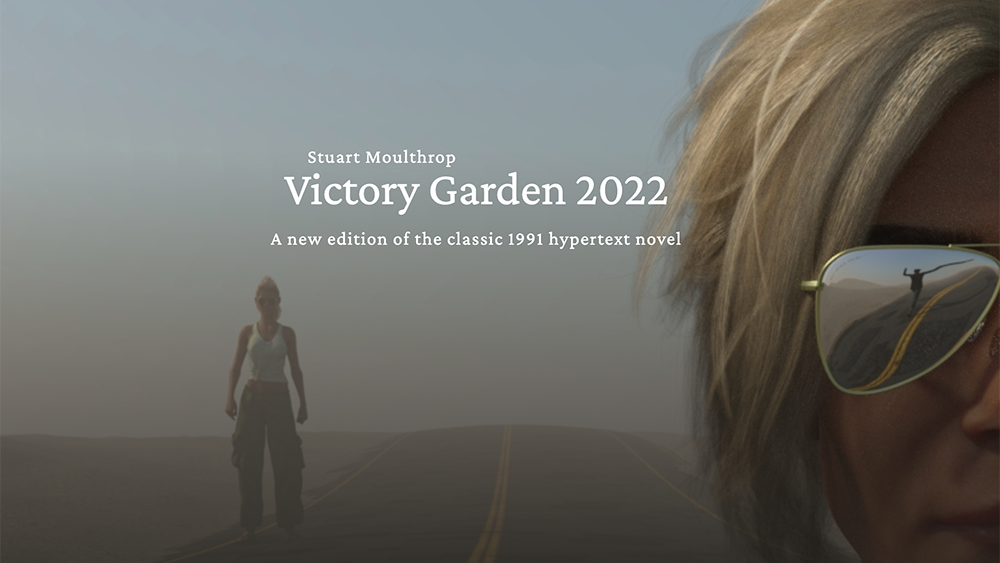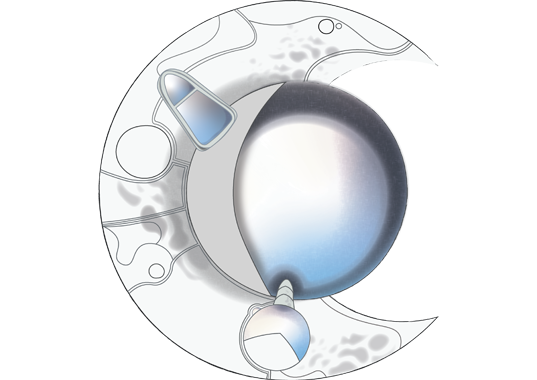Hypertext & Art: A Retrospective of Forms
What you are looking at is Sierra O’Neal’s 3D model of Lorenzo Miglioli’s 1993 RA-DIO, the first published Italian hypertext and the first in Italy created on the Storyspace platform. As you can see, RA-DIO consists of a print book and two 3.5-inch floppy disks packaged in a plastic sleeve. The floppy disks, formatted […]
MIX 2023

We are preparing for “MIX 2023: Storytelling in Immersive Media,” taking place at the British Library on July 7, 2023. Dene is representing the lab on the panel entitled “Unlocking the Digital Archive: Archiving, Preservation, and Enhanced Curation,” otherwise known as Panel 4. She is both Chairing the panel and giving a presentation about the […]
In honor of Helen Thorington
Helen Thorington, founder of the influential Turbulence.org (1996-2016), died on April 13, 2023 after a long illness. The lab is grateful for her passion and vision to showcase born-digital art and nurture artists, so many of whom built their careers through their association with Turbulence.org. For us in ELL, it has been a joy to […]
The 3rd Summit on New Media Art Archiving
My colleague Erika Fülöp (who is also a Research Affiliate of ELL) and I are giving a paper, entitled “Piloting Shared Born-Digital Archives between the US and Europe,” at the 3rd Summit on New Media Art Archiving taking place at ISEA 2023 in Paris this May. Our research is based on the project we developed […]
ELL Is Referenced in Holeton’s Article

The Electronic Literature Lab’s work to reconstruct Richard Holeton’s Figurski at Findhorn on Acid is referenced in the recently re-released Re_Dis_Connection, the publication of the 14th International Conference on Interactive Storytelling (ICIDS). The article, penned by the author, details the work we did to re-conceive Figurski––originally produced on the Storyspace platform––for the Web and for a […]
Report about the Lab’s Update to ELO’s The NEXT
The Electronic Literature Lab has been busy during its planned Winter Refinement period: 1) enhancing the metadata for many collections held in The NEXT, 2) preserving works produced with Flash and other outmoded software, such MIDI and Java Applets, and 3) completing the “Cite” feature that allows visitors to cite all the works in The […]
Victory Garden 2022 in The Digital Review

The lab’s efforts to reconstruct Stuart Moulthrop’s Victory Garden is featured in The Digital Review (TDR), Issue 02 in the “Rediscoveries” section of the journal in an essay appropriately titled, “Reconstructing Stuart Moulthrop’s Victory Garden.” As the editors of TDR write, “Rediscoveries of electronic literature are no different than rediscoveries of print literature. Without structured […]
Reconstruction of Sarah Smith’s “King of Space”

The Electronic Literature Lab and the Creative Media & Digital Culture Program are proud to announce the launch of the reconstruction of Sarah Smith’s King of Space. In production since January 12, 2022, the work is now widely accessible via the Web at https://kingofspace.org/. Reconstruction was undertaken by 23 spring graduates of the program who […]
Collection Selected for the Recovery Hub of American Women Writers
The Marjorie C. Luesebrink Collection that the lab developed and curated for ELO’s The NEXT was selected for inclusion in the July 2022 showcase of the “Recovery Hub of American Women Writers.” The Collection––consisting of 66 works the artists donated to The NEXT, 32 of which were created by the artist and preserved in various methods by the […]
Congratulations, Dr. Snyder!
We are very excited to announce that Richard Snyder, our Assistant Director and Metadata Specialist, successfully defended his dissertation yesterday (March 10) and so completed his PhD at Washington State University. His dissertation, “Word and Image in Early Modern Literature: A Digital Approach to Reading in Context,” is a hybrid one where he built a […]
